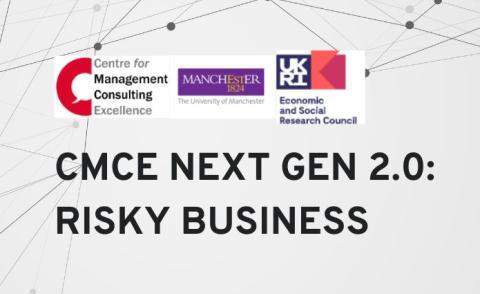How Does Motivation Affect Your Choices?
In May 2024 we held the second in our series of interactive workshops focusing on the fundamentals of behavioural economics and hosted in collaboration with Dr Edmond Smith, Senior Lecturer in Economic Cultures at the University of Manchester. The focus of this second session was to explore the multiple competing motivations that affect our decision-making process as individuals and as professionals. Acknowledging the influence of these factors on our day-to-day choices is the starting point to reflect on how we respond to change as well as to the risks and opportunities that we are faced with.
The main speaker for the evening was Adam McCarthy, PhD student in Science Technology and Innovation Policy at the Manchester Institute of Innovation Research. The focal point of his research is the governance of emerging technologies for societal benefit. As Adam explained, ‘we need to collaboratively rise to address global, grand challenges using all the tools, skills, and technologies at our disposal, while remaining critical about their potential pitfalls. This is the essence of responsible innovation.” During his presentation, Adam introduced a simplified version of a new tool that he developed to carry out a rapid, low-cost assessment of projects by considering the environmental, societal, and economic factors that play a key role in the commercialisation of new technology. The tool is intended to provide a framework for businesses across different sectors to effectively identify and navigate the different motivations that determine the decisions they make and that are, by necessity, anticipatory and shaped by bounded rationalities. These often-conflicting factors should be aligned, in order to develop responsible innovation strategies and implement change, especially when novel technologies are involved. As further reading, you can read Adam’s latest article https://osf.io/preprints/socarxiv/edhjx which reflects on one of the key questions in innovation studies today: can a method for sustainability assessment critically engage with the complex and multifaceted motivations for technology governance and sustainability whilst remaining practical for use by practitioners?
Our line-up of panellists also included, Caroline Wehrle, a non-executive director and pension trustee with more than 25-years-experience working in the fields of risk management, audit, internal controls, compliance and business integrity, and Dannielle Haig, a principal business psychologist, executive eoach, board advisor and people specialist, whose areas of expertise and academic research lie in leadership personalities and mental resilience. During the panel discussion, Caroline reflected on how business engagement with environmental, ethical and sustainability issues has changed over the past twenty years, and what the key motivations for that change are. In particular, the role played by competing stakeholders’ expectations and the importance of managing them effectively were identified as key points to create ‘healthy tensions’ that can help implement change successfully and efficiently. Dannielle also emphasised the importance of the people element and the need to create a shared vision when competing or conflicting motivations are causing division and may otherwise result in scepticism and resistance to change.
During the final part of the workshop, participants were asked to work in small groups to apply the ERSA (Environmental, Economic and Social sustainability) framework presented by Adam to two case studies, in order to carry out a traffic-light-system sustainability assessment of photovoltaic solar panels and large language models. The discussion highlighted a series of interesting factors that need to be taken into account when businesses and leaders are called to make a decision. These include, for example, the quality and reliability of the data and information available, the reputational element connected to a specific decision, the importance of encouraging wider stakeholder engagement as well as the social costs and the legal concerns involved. The session provided a range of thought-provoking insights that will certainly trigger further reflection on the factors that professionals and businesses alike should take into consideration when managing the rapidly changing and conflicting motivations that can influence the implementation of sustainable change.
Valentina Lorenzon is a member of the CMCE Coordination group and editor of the CMCE newsletter.
